Ever found yourself wondering how much a four-wheeler weighs before buying one or planning to haul it? You’re not alone; so many people get confused about whether a four-wheeler is light enough for easy transport or heavy enough to handle tough trails. It can be stressful not knowing whether your truck or trailer can safely carry the load.
That’s exactly what this post is here to clear up. We’ll break down the average weights, the factors that affect them, and why it matters when choosing or transporting your ATV. By the end, you’ll know how much does a four-wheeler weighs and how to pick the right model for your needs.
ATV vs. UTV Weight: What’s the Difference?
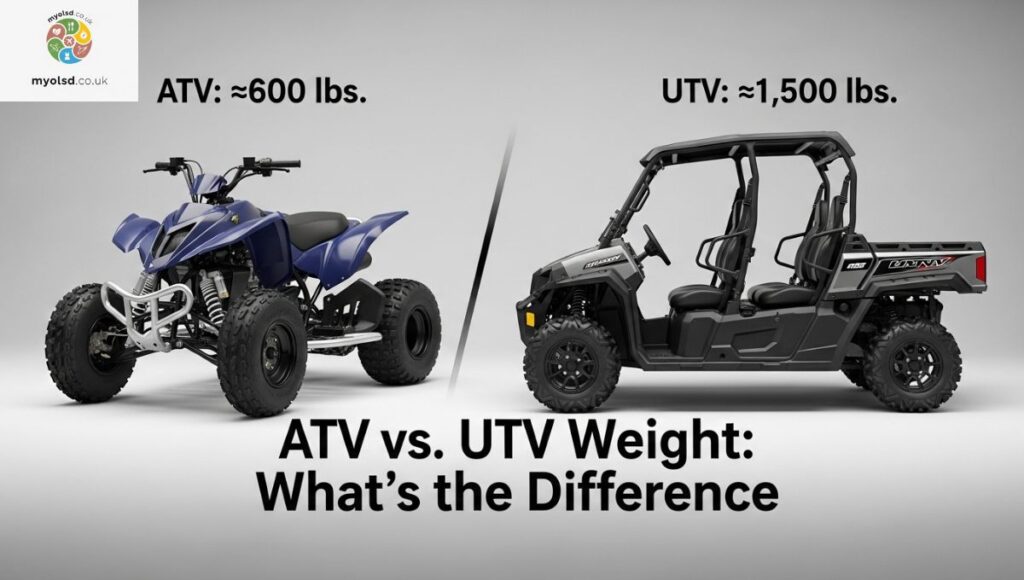
ATVs (All-Terrain Vehicles) and UTVs (Utility Task Vehicles) look similar at first glance, but their weight profiles differ a lot. A standard ATV typically weighs anywhere between 200 pounds and 600 pounds, depending on size and purpose. UTVs, on the other hand, are bulkier because they’re built to carry more passengers and gear, often weighing 1,000 pounds or more.
This weight difference matters for how you plan to use your vehicle. ATVs are lighter, nimbler, and often chosen for trail riding, recreational adventures, and sport use. UTVs, with their higher curb weight and added storage, excel in hauling cargo, farming, and work conditions. So, deciding between the two really depends on your riding goals.
ATV Weight by CC: A General Guide
When people ask how much does a four-wheeler weighs, the most common way to categorize is by engine size. Smaller engines usually mean lighter frames. For example, a 50cc youth ATV can weigh as little as 200 to 250 pounds, while a 450cc sport model often hits the 400 to 500 pound range.
Move up to 700cc or 1000cc utility ATVs, and you’re looking at 600 to 900 pounds easily. Manufacturers like Yamaha, Honda, Polaris, and Suzuki all offer models across this range. Engine size directly impacts power-to-weight ratio, handling, and hauling capacity, so knowing these weight brackets can help you choose the right fit.
UTV Weight Variations
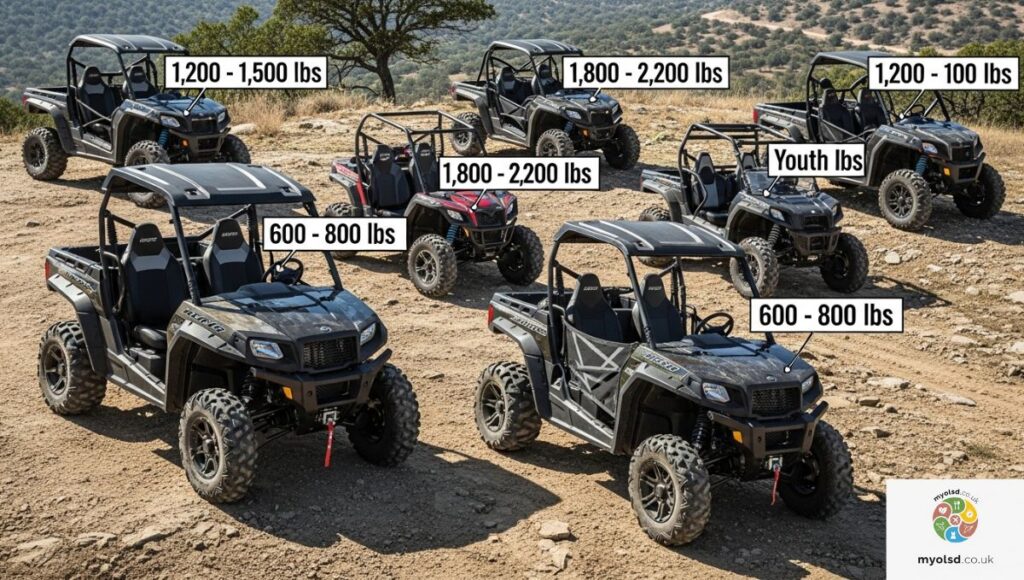
UTVs are in a different league. These machines are larger, often carrying two to six passengers, and are equipped with safety features such as roll cages. A recreational UTV usually weighs around 1,200 to 1,500 pounds, while utility-focused models can tip the scales at over 2,000 pounds.
Brands like Polaris, Can-Am, and Honda design UTVs for work, trail riding, and off-road adventures. Their weight affects towing limits, stability, and terrain handling, so if you’re considering a UTV, be sure your trailer and towing vehicle can handle the load safely.
Read more Article:What Perimonidehidom Is Used For
How Weight Affects Your Ride: Understanding the Impact
Weight isn’t just a number; it changes how your ATV or UTV feels. A lighter ATV offers better agility, easier maneuverability, and quicker acceleration, which is why racers often prefer them. On the flip side, a heavier model provides more stability, smoother rides on rough terrain, and a stronger hauling capacity.
Think of it this way: if you’re riding trails for fun, a lightweight sport ATV might be your best friend. But if you’re hauling logs, plowing snow, or pulling trailers, a heavier utility ATV or UTV will give you the muscle you need.
Key Weight Terms Explained
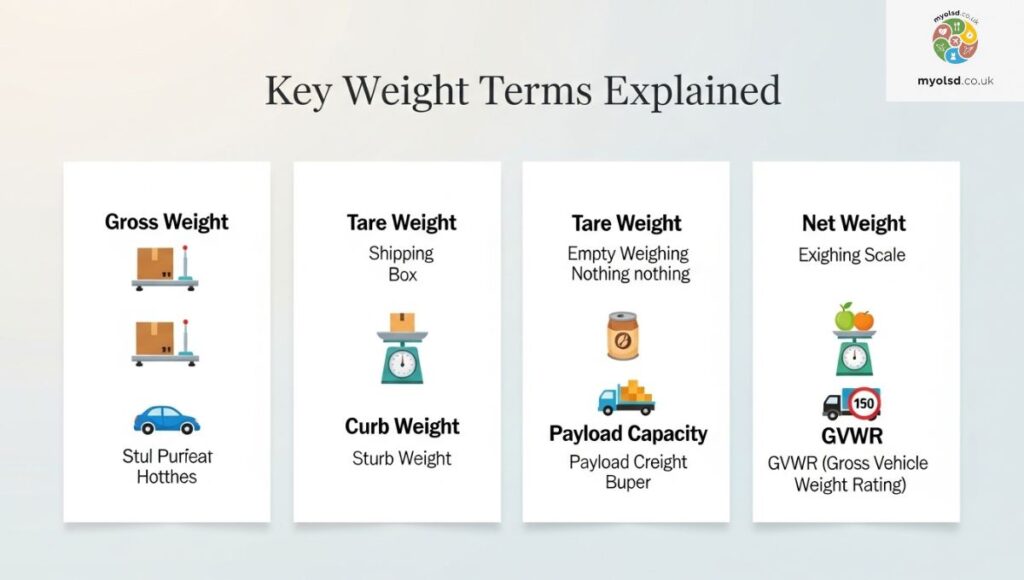
If you’re new to ATV and UTV specs, here are some common terms you’ll run into:
- Dry Weight: The vehicle’s weight without fluids (fuel, oil, coolant).
- Wet Weight: Includes fluids, making it closer to real-world riding weight.
- Curb Weight: Similar to wet weight, but standardized by manufacturers.
- GVWR (Gross Vehicle Weight Rating): Maximum safe weight of the vehicle plus riders, cargo, and accessories.
Knowing these terms helps you compare models accurately and avoid confusion when shopping.
Why ATV and UTV Weight Matters
Weight isn’t just a stat on paper. It affects fuel efficiency, braking distance, speed control, and overall performance. For example, a heavier ATV burns more fuel and requires longer stopping distances. A lighter one may be more fun to ride, but could feel less stable carrying heavy loads.
It also matters for legal requirements, transport safety, and trailer selection. If you overload your trailer or exceed towing limits, you risk damaging your equipment or facing safety concerns on the road. That’s why understanding true vehicle weight is essential.
How to Weigh Your ATV or UTV
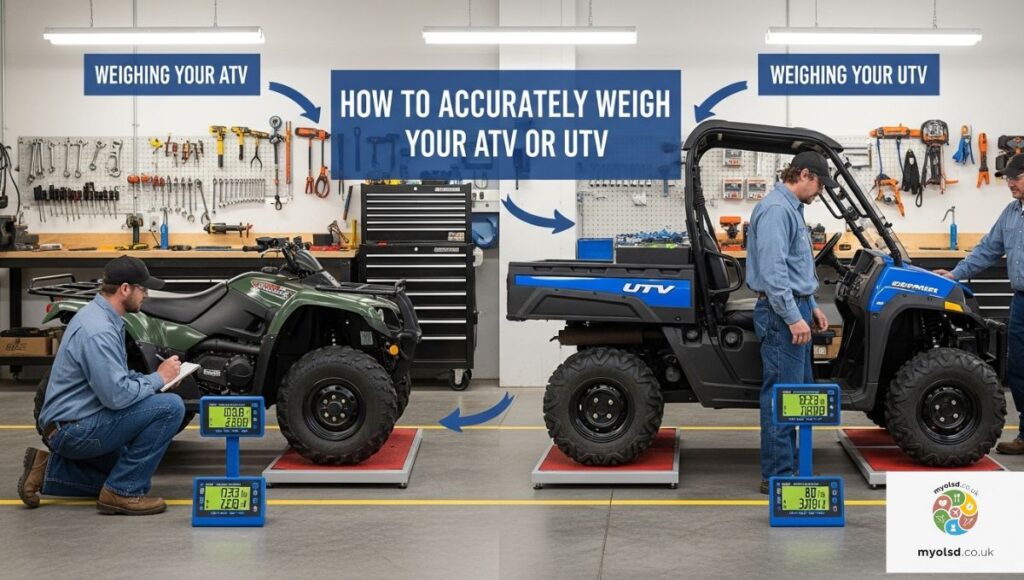
Wondering how to find your machine’s actual weight? You have a few options:
- Manufacturer Specifications – Check the owner’s manual or official website.
- Vehicle Scales – Many industrial or truck scales will weigh an ATV/UTV for a small fee.
- Dealerships & Service Centers – Some shops can provide weight info for your model.
- DIY Method – Using smaller platform scales under each tire, then adding the results together.
This helps confirm if you’re within safe payload limits and towing capacity.
Tips for Managing ATV and UTV Weight
If you’re worried about weight, here are some practical tips:
- Choose lightweight models if you plan on frequent transport or youth use.
- Remove unnecessary accessories or racks before hauling.
- Upgrade trailers and towing equipment to match your vehicle’s weight.
- Distribute cargo evenly in storage compartments to improve handling stability.
- Consider aftermarket modifications like aluminum frames or carbon fiber parts for weight reduction.
Managing weight wisely ensures safer rides and longer vehicle life.
Final Thoughts
So, how much does a four-wheeler weigh? It really depends, anywhere from 200 pounds for youth models to over 900 pounds for utility ATVs, with UTVs going well beyond that. What matters most is matching the machine’s weight to your riding purpose, transport needs, and performance goals.
By understanding average weight ranges, key terms, and the impact weight has on handling, you’ll make a smarter choice when buying, riding, or hauling your ATV or UTV.
FAQS
How much does a full-size four-wheeler weigh?
A full-size four-wheeler usually weighs between 400 and 700 pounds.
How much does a 650 4-wheeler weigh?
A 650cc four-wheeler typically weighs around 600 to 750 pounds.
How much does a 1000cc ATV weigh?
A 1000cc ATV often weighs 850 to 1,000+ pounds.
How much does a 500 quad weigh?
A 500cc quad generally weighs about 400 to 700 pounds.

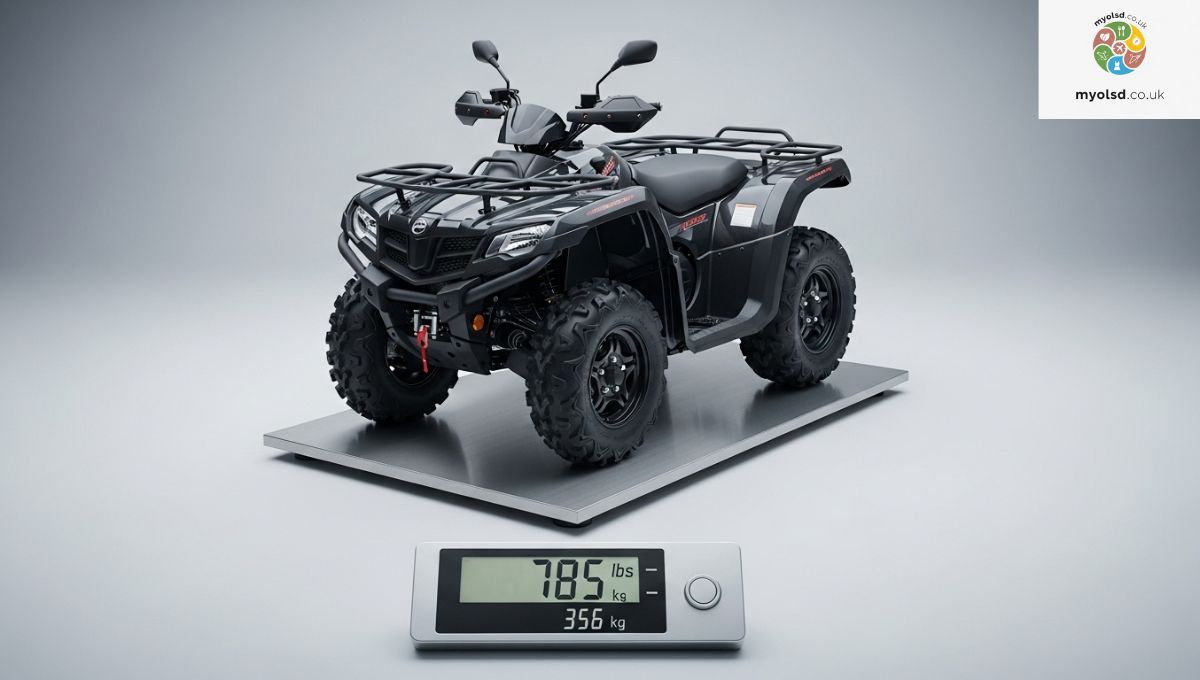
Gooooooooood
Nice
Good 👍